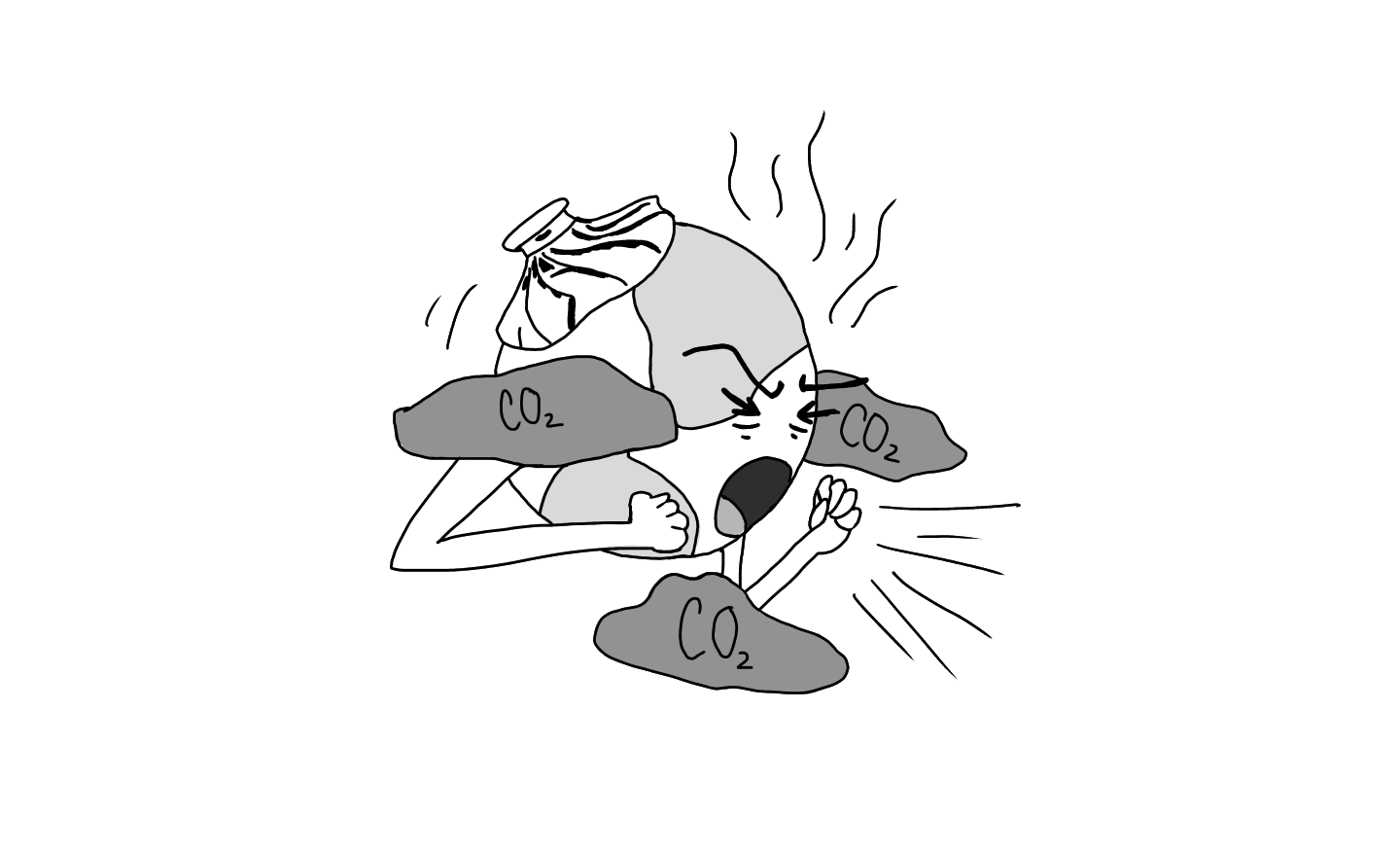

Global warming affects the world, but how is the current president taking it into consideration?
Environmental disasters have been devastating the country recently, and it has the potential to get much worse if the U.S. does not fix its environmental policies.
Since the British Industrial Revolution in the 1750s, carbon dioxide has been the world’s No. 1 driver of climate change. Primarily, this excess carbon dioxide comes from burning fossil fuels and forests.This causes a huge risk on our planet because carbon dioxide remains in the planet’s atmosphere longer than most other human-emitted gases. An increase in carbon dioxide gas can have huge impacts on Earth. High levels of CO2 in oceans can affect marine life and reduce the protein content in plants, which is necessary for growth.
According to the Intergovernmental Panel on Climate Change, “after a pulse of CO2 is emitted into the atmosphere, 40 percent will remain in the atmosphere for 100 years and 20 percent will reside for a thousand years, while the final 10 percent will take 10,000 years to turn over.”
This means that future generations will be dealing with CO2 from centuries ago. Though some CO2 is naturally occurring in our atmosphere, an excess of this greenhouse gas can trap heat into the atmosphere, rising the temperature of the Earth.
Environmental Protection Agency Administrator Scott Pruitt has been impacting the movement towards improvement of climate change issues. He, along with President Donald Trump, said that they do not believe climate change is caused by human activity.
In response to a recent canceled climate change event three EPA members were supposed to speak in, Sen. Sheldon Whitehouse said, “because this [event] was going to be about climate change … they [didn’t] want people from their agency to be caught saying [those words]. It’s just been a constant effort at trying to silence conversation about climate change.”
Under President Obama, climate change was the the EPA’s No. 1 priority. However, President Trump has been trying to cover that up, even deleting data on the EPA’s website.
Since the impetuous Trump administration came into power, many other scientific researches and proposals to benefit the world have been declined as well. In March, Pruitt denied scientist Wendy Cleland-Hamnett’s request to ban the commercial use of chlorpyrifos. Chlorpyrifos, a pesticide developed as a nerve gas by Nazi Germany, is now present in the things we consume.
Mainly used in agriculture, this pesticide could be linked to developmental disabilities in children, decreasing IQ levels and causing tremors. In adults, it has been linked to lung cancer and Parkinson’s disease.
Cleland-Hamnett said, “It was extremely disturbing to me … The industry met with EPA political appointees. And then I was asked to change the agency’s stand.”
To me, it doesn’t make sense that a federal agency, which is supposed to improve the world, is going against real environmental scientists who have proposed and researched bans.
Not only is climate change affecting the U.S., but it’s also impacting other countries. On June 1, President Trump notoriously said that he would withdraw from the United Nations Framework Convention on Climate Change, in spite of the fact that two-thirds of Americans supported signing this accord. While only 4.4 percent of the world’s population lives in the United States, we account for 20 percent of the world’s global emissions.
Environmental scientists caution that an increase of more than 3.6 degrees can bring harsh consequences, including unpredictable superstorms and uncontrollable heat waves. As a part of G-20, an international forum consisting of the world’s 20 leading countries and economies, the U.S. needs to set goals to reduce harmful gas emissions. If the “new” EPA doesn’t permit scientists to research, express their opinions and propose plans, it can lead the U.S., and many others, into dire consequences.
In 2018, scientists at Harvard University will take bold steps to explore geotechnology that could reverse the effects of climate change. Specifically, they are looking at ways to reflect sunlight back into space and cool down the Earth.
Solar engineering is the idea of introducing a substance into the stratosphere that will cool down the planet by reflecting the sunlight. However, it poses some risks, mainly because it will change the environment without knowing the side effects. Ultimately, solar engineering could prove a risk not worth taking. But ignoring it now could prove to be even more dangerous.
The reduction of CO2 emissions is necessary, and funding new technology could be a remedy. Hopefully government officials will admit climate change is real and will soon realize the importance of keeping the world safe and protected for future generations.




